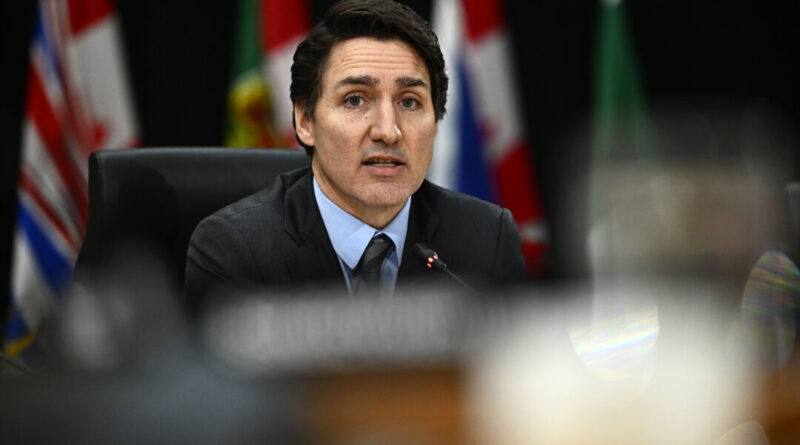Trudeau’s $200 Million Fentanyl Intelligence Initiative: What You Need to Know
Canada has strengthened its border security strategy following the U.S. announcement regarding tariffs, which includes instructing intelligence agencies to intensify their efforts to combat transnational crime.
The government has not clarified if this financial commitment is part of the initial $1.3 billion border strategy introduced in December. Public Safety Canada was approached for comment.
Trudeau also stated that Canada would categorize drug cartels as terrorist organizations, a declaration previously made by U.S. President Donald Trump on his first day in office.
He asserted that the typical stakeholders involved in crime prevention, including local governments and law enforcement, must continue their efforts, but with enhanced support from a “coordinated focus from our national security and intelligence community.”
According to Trudeau, the border strategy will allocate resources to the Communications Security Establishment (CSE), aimed at enhancing its surveillance of transnational organized crime and illegal drug supply chains. However, under the law, CSE cannot collect information on Canadians without judicial clearance.
In addition to ramping up CSE’s intelligence operations concerning the drug trade, Trudeau mentioned that the funding should enhance CSE’s cyber capabilities to hinder drug trafficking.
The directive specifies that the Canadian Security Intelligence Service (CSIS) will be instrumental in Canada’s broader strategy to strengthen efforts against criminal networks.
Trudeau has instructed the public safety and defence ministers to collaborate with the RCMP, Public Safety Canada, and CSE to create a “joint operational intelligence cell” dedicated to “transnational organized crime, money laundering, border security, and drug trafficking.”
This collaborative effort will involve organizations like CSIS, the Canada Border Services Agency, Global Affairs Canada, Health Canada, and FINTRAC.
“I expect this to be executed with a keen focus on the trafficking of illegal drugs, particularly fentanyl, and the importation of precursor chemicals into North America,” Trudeau wrote.
Additionally, Trudeau’s directive calls for enhanced information sharing with sub-federal entities and collaborative operations with allies, particularly “the United States.”
“The United States remains, and will continue to be, our most pivotal partner in the mission to reduce and disrupt transnational criminal activities and drug trafficking throughout North America,” Trudeau asserted.
On February 3, the prime minister announced the launch of a joint strike force aimed at tackling organized crime.
“This strike force is set to address organized crime, fentanyl trafficking, and money laundering,” McGuinty stated during his talks about border strategies in Manitoba on February 4.



